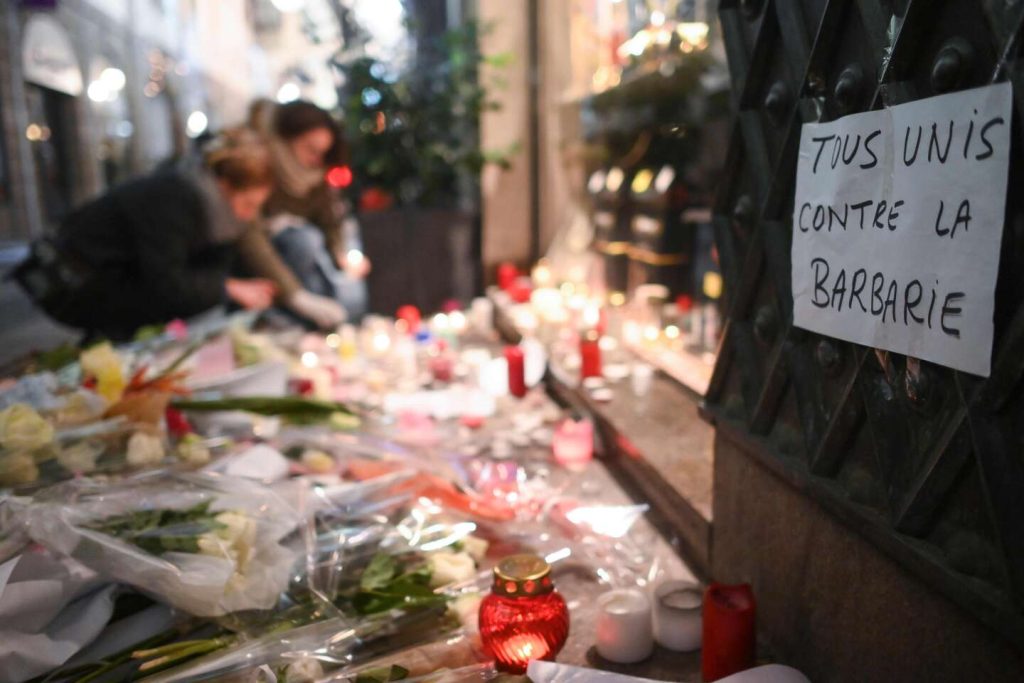The trial of the Strasbourg Christmas market attack has centered around the question of what was going on in the mind of Audrey Mondjehi. The accused, who describes himself as a “mystery bouquet” (instead of ‘scapegoat’) and complains about elements being “taken out of the concept” (instead of ‘context’) by the prosecution, has not been very helpful in his defense. The court is trying to determine if he was aware of the radicalization of the terrorist Cherif Chekatt, who killed five people on December 11, 2018, when he agreed to provide him with weapons. The prosecution believes he was aware and has called for a sentence of thirty years in prison for terrorist activities.
Following the damning prosecution’s statement, Mondjehi’s defense team has tried to show that he was unaware of the terrorist intentions of Chekatt. They have asked for Mondjehi to be acquitted of the terrorism charges and instead be convicted for regular criminal association. Despite the defense’s efforts, Mondjehi’s own performance during the trial has been poor, with lies and contradictions becoming apparent. His defense lawyers believe he struggles to understand the burden of proof on him and feels trapped by the enormity of the accusations against him.
Mondjehi has consistently claimed that he believed Chekatt was planning a robbery, not a terrorist attack. His lawyer has asked the court to consider his state of mind based on the environment he grew up in, where delinquency, Islam, and weapon trafficking were common occurrences. The defense argues that in such a context, it was not suspicious for Mondjehi to help his Muslim friend acquire a weapon, even if the friend had signs of religious devotion. They urge the court to understand Mondjehi’s actions within the context of his upbringing and surroundings.
The difficulty for Mondjehi lies in proving his innocence, as he seems to struggle to meet the court’s expectations of providing evidence of what was in his mind at the time. The defense team believes that Mondjehi’s lack of understanding of the legal process and the weight of the accusations against him have contributed to his poor defense strategy. Despite this, they continue to argue for his innocence and for a less severe punishment than what the prosecution is seeking. The verdict is eagerly awaited as the court tries to unravel the complex web of events leading up to the tragic attack in Strasbourg.


